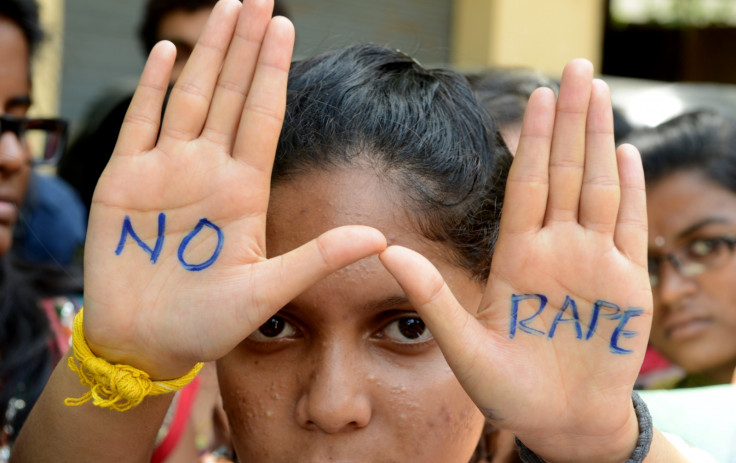India: Sankraud leaders deny rape punishment for sisters as global outrage grows

Leaders of a village in India's Uttar Pradesh state have denied they ordered two sisters be raped and paraded naked after more than 230,000 people signed a petition calling for the safeguarding of the two women.
In August, some reports alleged that an all-male council in the Sankraud village ordered Meenakshi Kumar, 23, and her 15-year-old sister be raped and paraded as a punishment after one of their brothers had allegedly eloped with a married woman belonging to Jat, a superior caste. The sisters and their family belong to the Dalit group, at the bottom of India's society.
According to Amnesty International, which launched the petition calling for the protection of the two sisters, the two girls fled along with their family fearing reprisals, while Meenakshi filed a petition with the Supreme Court. The human rights group also expressed concern for the Jat woman, believed to be pregnant with the child of the sisters' brother.
Adultery in India
Indian law considers adultery as an extra-marital intercourse between a man and a married woman without the consent of her husband.
Section 497 of the country's penal code says the man - even if unmarried - might be fined and/or imprisoned for up to five years, while the woman cannot be punished. The law has been criticised for being biased against men and for treating women as a property of their husband.
A member of the girls' family warned that the council comprised powerful people from the Jat group, including family members of the woman, and thus its decision could not be opposed.
Amnesty condemned the order of the council, and warned that similar bodies - known as Khap panchayat and declared illegal by India's Supreme Court - are scattered across India and are often dominated by members of dominant castes.
However, members of the Khap panchayat are now saying that the Dalit family should apologise for spreading false information regarding the council.
"It is the handiwork of those who want to malign the Khaps," Chaudhary Jitendra Singh, head of the Dhama khap, told the Hindustan Times. "I went to Sakrond two months ago to attend a funeral. I have not been there since. I came to know about the issue through the media."
In an interview with the BBC, relatives of the Jat woman denied there was a love affair between her and Meenakshi's brother and alleged the woman, who is now back in Sankraud, had not left her house willingly.
When contacted by IBTimes UK, a spokesperson for Amnesty said: "We stand by our petition. The family remains in urgent need of protection, which must be the Indian authorities' main focus.
"We have been actively working with, supporting and campaigning for the Kumari family since the Supreme Court first responded to their petition, stating that a village council had ordered the rape of the two sisters as punishment for their brother eloping with a married woman," the spokesperson continued.
"Our office in India reviewed court documentation submitted by the family; spoke with their lawyer; and has also been in contact with other members of the Baghpat district community to corroborate events."
Rape in India
India has one of the highest rates of rape worldwide. In 2014, a spate of rapes in Uttar Pradesh – including some which saw the victims, mainly Dalit girls, being hung from trees after being abused – caused a huge backlash, with dozens of people urging the Indian government to tighten its laws on rape and to prosecute perpetrators who go largely unpunished.
Last July, Uttar Pradesh's governor Aziz Qureshi sparked outrage after claiming that "even God cannot prevent rapes". Qureshi made the comment as he was questioned by journalists about women's safety in the state.
The remark followed a previous comment by the head of the Samajwadi Party in Uttar Pradesh, who told an election rally that he was opposed to gang rapists being executed. "Boys will be boys," Mulayam Singh Yadav said. "They make mistakes."
In March, one of the Indian men convicted for gang-raping and killing a woman in India's capital New Delhi in 2012 sparked outrage after blaming the victim for what happened to her arguing that it was her fault for "attracting the attention of her assailants".
Jyoti Singh, a 23-year-old student was sexually abused, beaten and thrown out of a moving bus while she was returning home from the cinema with a male friend. She later died at Singapore's Mount Elizabeth Hospital. During an interview conducted in jail for a BBC documentary, Mukesh Singh said the student was to blame for going out at night and attracting the attention of her assailants.
Singh's comments came a few months after Jyoti's family warned that women in India were still not safe. Last December, a survey published by the Hindustan Times revealed 2,054 women out of the 2,257 (91%) interviewed in Delhi believed the capital had not become any safer since the gang-rape attack. At least 2,189 women (97%) admitted they had faced some form of sexual harassment.
© Copyright IBTimes 2025. All rights reserved.






















